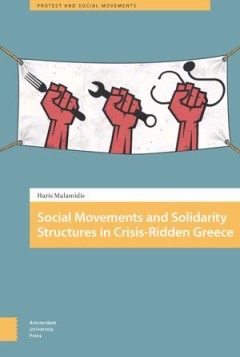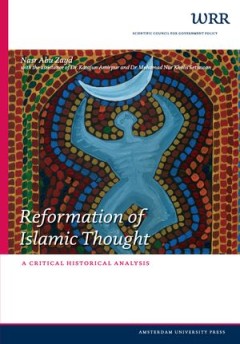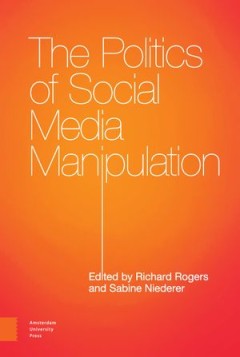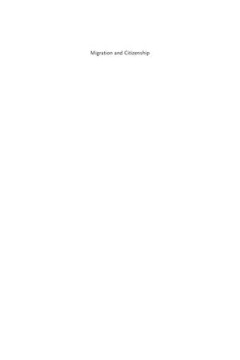Filter by

Strategies of Care
This analytic study surveys the transformations of elderly care policies and practices since the early 1990s, by comparing the trajectories of two extremely different care systems: Italy, a familialistic model with no relevant changes in social policies; and the Netherlands, a formal care model under restructuring. The author demonstrates that, in spite of strong policy pressures, the Dutch sys…
- Edition
- -
- ISBN/ISSN
- 9789089642240
- Collation
- -
- Series Title
- -
- Call Number
- 320 ROI s

Sri Lankan Housemaids in Lebanon
Unraveled in this book are the real dynamics at stake in the Madame/housemaid relationship. While cases of extreme physical abuse by the Lebanese women who hire housemaids - Madames - are an exception, what has become normalised are more insidious patterns of domination used to control each and every aspect of their employees' lives. For their part, Sri Lankan housemaids are not merely passive …
- Edition
- -
- ISBN/ISSN
- 9789089640512
- Collation
- -
- Series Title
- -
- Call Number
- 320 MOU s

Social Movements and Solidarity Structures in Crisis-Ridden Greece
Social Movements and Solidarity Structures in Crisis-Ridden Greece explores the rich grassroots experience of social movements in Greece between 2008 and 2016. The harsh conditions of austerity triggered the rise of vibrant mobilizations that went hand-in-hand with the emergence of numerous solidarity structures, providing unofficial welfare services to the suffering population. Based on qualit…
- Edition
- -
- ISBN/ISSN
- 9789048551460
- Collation
- -
- Series Title
- -
- Call Number
- 302 MAL s

A Risky Business?
This book is about migration as a form of risk-taking. Based on Ukrainian women's experiences in the Polish domestic work sector, it presents a new approach to analyse movements of female migrants responding to the demand for household labour around the world. Risks involved in migration and in migrant domestic work are accounted for in detail alongside an analysis of the migration decision-mak…
- Edition
- -
- ISBN/ISSN
- 9789089643278
- Collation
- -
- Series Title
- -
- Call Number
- 351.81 KIN r

Reformation of Islamic Thought
Ever since the dramatic events of September 11, 2001 the fundamentalist and exclusivist trend prevails in most presentations of Islamic thinking. Indeed, these events have given extremists and fundamentalists a much more prominent position than they might ever have dreamt of. In Reformation of Islamic Thought, the prominent Egyptian scholar Nasr Abû Zayd examines the positive, liberal, and inc…
- Edition
- -
- ISBN/ISSN
- 9789053568286
- Collation
- -
- Series Title
- -
- Call Number
- 320 WET r

The Position of the Turkish and Moroccan Second Generation in Amsterdam and R…
The Dutch second generation of Turkish and Moroccan origin is coming of age and making a transition from education to the labour market. This first publication of the TIES Project (Towards the Integration of the European Second Generation) studies the social situation and views of this ethnic group, drawing on the research carried out in Amsterdam and Rotterdam in 2006-07 among the Dutch-born c…
- Edition
- -
- ISBN/ISSN
- 9789089640611
- Collation
- -
- Series Title
- -
- Call Number
- 320 HEE p

The Politics of Social Media Manipulation
Disinformation and so-called fake news are contemporary phenomena with rich histories. Disinformation, or the willful introduction of false information for the purposes of causing harm, recalls infamous foreign interference operations in national media systems. Outcries over fake news, or dubious stories with the trappings of news, have coincided with the introduction of new media technologies …
- Edition
- -
- ISBN/ISSN
- 9789048551675
- Collation
- -
- Series Title
- -
- Call Number
- 302.23 POL p

Policy, People, and the New Professional
Engaging with the acclaimed American sociologist Eliot Freidson's argument about professionalism's 'third logic' (a viable alternative to bureaucracy and consumerism), Dutch, British, French and German contributors to this volume bring together three political and academic debates rarely tackled jointly: professionalism, change, and policy, in the context of the increasing marketization and bur…
- Edition
- -
- ISBN/ISSN
- 9789053568859
- Collation
- -
- Series Title
- -
- Call Number
- 301 KNI p

Migration Policymaking in Europe
This important work analyses immigration and immigrant inclusion policies in ten European countries, examining how such policies are formed and subsequently implemented. The study singles out the important role of usually overlooked factors and actors that significantly affect policymaking alongside the formal legal framework. It also identifies similarities and diversities in European immigrat…
- Edition
- -
- ISBN/ISSN
- 9789089643704
- Collation
- -
- Series Title
- -
- Call Number
- 351.81 PEN m

Migration and Citizenship
Citizenship is frequently invoked both as an instrument and goal of immigrant integration. Yet, in migration contexts, citizenship also marks a distinction between members and outsiders based on their different relations to particular states. A migration perspective highlights the boundaries of citizenship and political control over entry and exit as well as the fact that foreign residents rema…
- Edition
- -
- ISBN/ISSN
- 9789053568880
- Collation
- -
- Series Title
- -
- Call Number
- 351.81 BAU m
 Computer Science, Information & General Works
Computer Science, Information & General Works  Philosophy & Psychology
Philosophy & Psychology  Religion
Religion  Social Sciences
Social Sciences  Language
Language  Pure Science
Pure Science  Applied Sciences
Applied Sciences  Art & Recreation
Art & Recreation  Literature
Literature  History & Geography
History & Geography